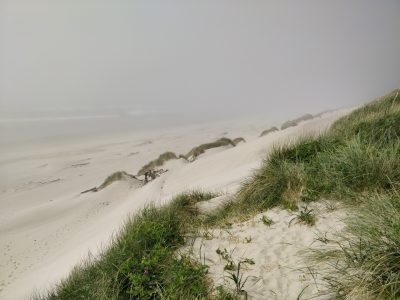Veronika Kratz, a senior PhD candidate in the Department of English, has recently had an article published in ISLE: Interdisciplinary Studies in Literature and Environment titled “Frank Herbert’s Ecology, Oregon’s Dunes, and the Postwar Science of Desert Reclamation.” The essay is available online as an advance article here. The essay historicizes Herbert’s 1965 science fiction novel Dune using his research on sand dune stabilization projects in Oregon in the late 1950s.
While often discussed as a work of mid-century US environmentalism, Kratz argues that this context obscures Herbert’s conception of ecology as an applied, economic and utilitarian science tied to the needs of agricultural production. Using his research notes and working drafts of Dune from the Frank Herbert Papers at the University of California Fullerton, she establishes a connection between Herbert’s ecological thinking and a tradition of environmental crisis stemming from the 1930s Dust Bowl, a tradition that continued to influence the conservationists working on the Oregon dunes in 1957 and appears today in the logic of ‘green’ capitalism. Kratz’ analysis considers the role that narratives like Dune play in making space for environmental crisis to be seen as an opportunity for development and growth while obscuring the social and environmental costs of this mindset.

The coastal dunes near Florence, Oregon, where Herbert started his research in 1957. Photo courtesy of Veronika Kratz.